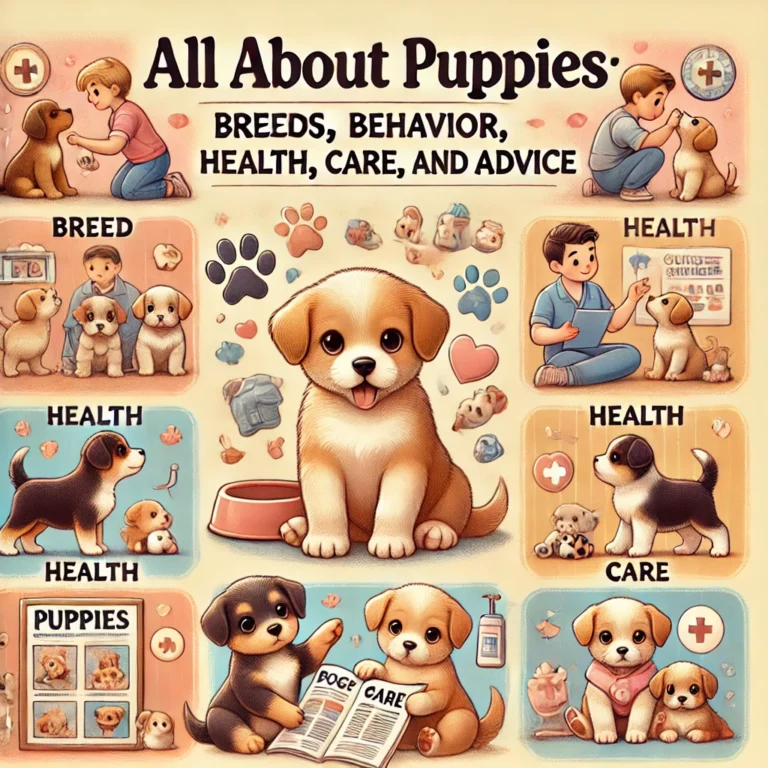How to Improve Dog Gut Health: Essential Strategies for Canine Digestive Wellness
Dogs are amazing companions, but their health can sometimes be a concern.
One crucial aspect of canine well-being is gut health. A healthy gut supports digestion, immunity, and overall wellness in our furry friends.
We can boost our dogs’ gut health through diet, exercise, stress reduction, and other natural methods.

Many factors influence canine gut health, including diet, stress, and environmental factors.
Poor gut health can lead to various issues like allergies, digestive problems, and even behavioral changes. By understanding these factors, we can take steps to improve our dogs’ gut health and enhance their quality of life.
Improving dog gut health doesn’t have to be complicated.
Simple changes like adding bone broth to their diet or reducing stress can make a big difference.
Regular exercise and maintaining a healthy weight are also key factors in promoting good gut health. With the right approach, we can help our canine companions thrive.
Understanding Dog Gut Health

A dog’s digestive system plays a vital role in their overall health and well-being. The gut contains trillions of microorganisms that affect digestion, immunity, and even behavior.
The Role of Microbiota in Canine Digestion
The gut microbiome is made up of various bacteria, fungi, and other microorganisms. These tiny helpers break down food and aid in nutrient absorption. They produce enzymes that help dogs digest complex carbohydrates and fibers.
Beneficial gut bacteria also:
- Produce vitamins K and B
- Support the immune system
- Help maintain a healthy gut lining
Without these microorganisms, our dogs would struggle to get proper nutrition from their food. A healthy balance of gut bacteria is crucial for optimal digestion and overall health.
The Importance of a Balanced Microbial Environment
A balanced gut microbiome is key to a dog’s digestive health. When the balance is off, it can lead to various issues.
Stress can negatively impact gut health in dogs, disrupting the delicate microbial balance.
Signs of an imbalanced gut include:
- Diarrhea or constipation
- Excessive gas
- Skin problems
- Weakened immune system
We can support a healthy gut environment by:
- Providing a balanced diet
- Offering probiotic supplements
- Reducing stress in our dog’s life
By maintaining a healthy gut microbiome, we help ensure our dogs’ digestive tracts function properly. This supports their overall health and well-being.
Factors Affecting Canine Gut Health

A dog’s digestive system can be influenced by various factors. These include what they eat, how stressed they are, and exposure to harmful organisms. Let’s explore these key elements in detail.
Nutritional Influences on Gut Health
Diet plays a crucial role in a dog’s gut health.
Feeding your dog a balanced diet is essential for maintaining good digestive function. We recommend choosing high-quality dog food with proper nutrients.
Fiber is key for gut health. It feeds good bacteria and helps with regular bowel movements. Probiotics can also be helpful. These are good bacteria that support digestion.
Some foods can harm a dog’s gut. These include:
- Fatty foods
- Dairy products
- Artificial additives
We suggest avoiding these to keep your dog’s tummy happy.
Impact of Stress and Inflammation
Stress can greatly affect a dog’s gut health.
When dogs are stressed, their digestive system doesn’t work as well. This can lead to upset stomachs and other issues.
Signs of stress in dogs include:
- Excessive panting
- Pacing
- Changes in eating habits
Inflammation in the gut can cause problems too. It may lead to conditions like inflammatory bowel disease.
We can help reduce inflammation by:
- Giving dogs anti-inflammatory foods
- Using supplements like omega-3 fatty acids
- Reducing stress in their lives
Pathogens and Canine Digestive Disorders
Harmful organisms can upset a dog’s gut balance. These include bacteria, viruses, and fungi. They can cause infections and digestive issues.
Common digestive problems in dogs are:
- Diarrhea
- Vomiting
- Constipation
Bone broth can help soothe digestive issues. It’s easy to make and dogs often enjoy it.
We should keep our dogs’ living areas clean. This helps prevent the spread of harmful organisms. Regular vet check-ups are also important. They can catch problems early before they get worse.
Effective Strategies for Promoting Gut Health in Dogs
Dogs need a balanced diet and helpful supplements to keep their digestive systems working well. We can take several steps to improve their gut health and overall wellness.
Dietary Modifications and Proper Nutrition
A healthy diet is key for a dog’s gut health. We should focus on high-quality proteins and easily digestible foods.
Fiber-rich foods like pumpkin can help with digestion and bowel movements.
Adding healthy fats, such as omega-3 fatty acids, can reduce gut inflammation. We can find these in fish or fish oil supplements.
It’s important to avoid processed foods and artificial additives. These can upset a dog’s stomach and harm good gut bacteria.
We should also make sure dogs get enough vitamins and minerals. A balanced diet or supplements can provide these nutrients.
The Benefits of Probiotics and Prebiotics
Probiotics are good bacteria that help keep the gut healthy. They can improve digestion and boost the immune system.
We can give dogs probiotics through supplements or fermented foods. Yogurt and kefir are good sources if a dog can tolerate dairy.
Prebiotics feed the good bacteria in the gut. They’re found in foods like bananas and sweet potatoes.
Using both probiotics and prebiotics together can create a healthier gut environment for dogs.
Incorporating Supplements and Functional Foods
Some supplements can greatly improve a dog’s gut health.
Fish oil is rich in omega-3s, which can reduce inflammation in the gut.
Bone broth is another helpful addition. It’s easy on the stomach and full of nutrients that support gut health.
We can also try adding small amounts of fresh, dog-safe fruits and vegetables to their diet. These provide extra fiber and nutrients.
It’s important to introduce new foods or supplements slowly. This helps prevent stomach upset. We should always check with a vet before making big changes to a dog’s diet.
Consulting Healthcare Professionals
Professional veterinary guidance is crucial for maintaining optimal gut health in dogs. Seeking expert advice can help identify issues early and develop tailored treatment plans.
When to Seek Veterinary Advice
We recommend consulting a veterinarian if our dog shows persistent digestive symptoms. These may include:
- Frequent diarrhea or constipation
- Vomiting
- Loss of appetite
- Unusual weight loss
- Lethargy or behavioral changes
Early intervention is key. Veterinarians can perform diagnostic tests to identify underlying issues affecting gut health. These may include blood work, stool analysis, or imaging studies.
Regular check-ups are also important for preventative care. We should discuss our dog’s diet, lifestyle, and any concerns during these visits.
Navigating Treatment Options and Preventative Care
Veterinarians can provide a range of treatment options for gut health issues.
These may include:
- Dietary changes
- Probiotic supplements
- Medications (e.g., antibiotics when necessary)
- Lifestyle modifications
We should work closely with our vet to understand the pros and cons of each option. It’s important to follow dosage instructions carefully and monitor for any adverse reactions.
Preventative care is equally important. This may involve:
- Regular deworming
- Fecal tests to check for parasites
- Tailored nutrition plans
- Stress reduction strategies
We can also ask about ongoing veterinary research and clinical trials related to canine gut health. This can help us stay informed about the latest advancements in care.
Frequently Asked Questions
Dog gut health impacts many aspects of canine wellbeing. We’ll address common concerns about nutrition, supplements, and holistic approaches to support digestive function in dogs.
What are the signs of poor gut health in dogs?
Dogs with poor gut health may show several symptoms. These can include diarrhea, vomiting, and loss of appetite.
Stress can also affect a dog’s digestive system, leading to changes in bowel movements or stomach upset.
What natural supplements can improve a senior dog’s gut health?
Probiotics are helpful for senior dogs’ gut health. These beneficial bacteria support digestion and nutrient absorption.
Fish oil is another good option, as it reduces inflammation in the digestive tract.
How can one balance a dog’s gut bacteria?
Balancing gut bacteria involves diet and lifestyle changes.
Adding probiotics to a dog’s food can improve the balance of good bacteria. Reducing stress and providing regular exercise also help maintain healthy gut flora.
What can be added to a dog’s diet to enhance gut health?
Fiber-rich foods support gut health in dogs. We recommend adding small amounts of pumpkin, sweet potato, or green beans to their meals.
Fermented foods like plain yogurt can also introduce beneficial bacteria to the gut.
Are there holistic approaches to support a dog’s total body health?
Holistic approaches focus on whole-body wellness. Regular exercise, mental stimulation, and a balanced diet all contribute to overall health.
Massage and acupuncture may also help some dogs with digestive issues.
What benefits does FidoSpore offer for a dog’s digestive system?
FidoSpore is a probiotic supplement for dogs. It contains spore-forming bacteria that can survive the harsh stomach environment.
This allows the probiotics to reach the intestines where they can support healthy digestion and immune function.




